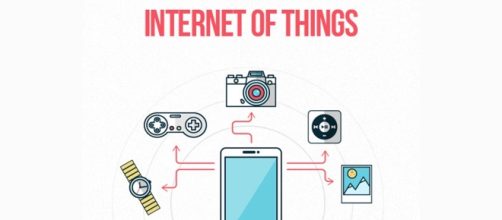Many people are still unsure what the concept of internet of Things is, while experts on the subject are already throwing out staggering numbers on how many devices will be 'online' by 2020. From the mind-boggling 30 billion devices as predicted by the analysts at "Gartner," to a bit more toned down predictions of 26 connected devices, as is the opinion of another analytical group, "Stringify." Even if the concept is still unclear to everybody who uses a modern machine or an appliance, an obvious question of Security comes to mind when you consider such an enormous number of 'things' connected online.
Is there a significant threat or do you think that nobody cares about your 'networked' coffee machine?
Internet of Things: Convenient but...
If you are still not sure what Internet of Things is and whether practically any modern appliance at your work or home 'could go online,' the answer is yes. Practically, any recent product with an on and off switch can and is networked as most modern machines and appliances at least partly consist computerized elements. In modern industrial practices, it is essential that for example, elements of an oil rig 'talk among themselves.' This brings efficiency in the workplace and convenience at home, but if all the other truly computerized devices - your home computers, laptops, mobile phones, and tablets can be hacked and misused, what about all these machines and appliances?
IoT security threats are still not tackled properly
While many ordinary people, but also officials and IT decision makers that use critical devices every day are still having a false sense of security when IoT devices are concerned. Xu Zhou, CEO of the IoT specialists ZingBox gives the example of the healthcare industry, saying that according to their survey, three-quarters of IT decision makers there are confident or very confident that portable and connected medical devices are secure. But Zhou says that potential attackers "can take over their control and use them as a botnet." Also, as reported by IT security firm Sanrio, a recently discovered flaw in a widely-used code library known as gSOAP has exposed millions of IoT devices to a remote attack.
Even more alarming is the fact uncovered by recent surveys by specialist consulting companies IDC and Altman Vilandrie & Co which uncovered that 46% of respondents among companies have reported that their IoT devices have already suffered a security breach due to attack.
What is to be done?
Altman Vilandrie thinks that one of the reasons why the companies are not taking much action is the costs of securing IoT devices which are expected to be as much as one-third of the IT spending budget. On the other hand, software giants Google and Microsoft are already taking action concerning IoT security. Google will offer its Google IoT core as a method of securely setting up IoT networks. On the other hand, there might be a necessity of government involvement, as advised by such cyber security experts as Bruce Schneier. Whatever the course of action is taken, it is evident that the number of IoT devices is growing, and so is the threat of their security


